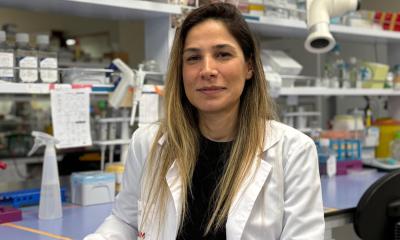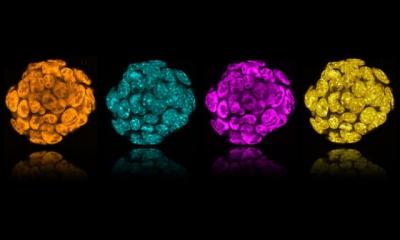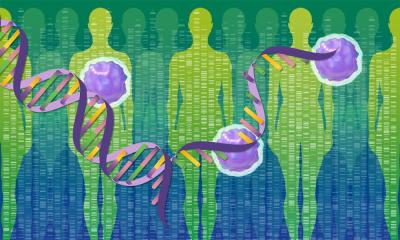Genome
Research could help in fight against infection and cancer
Researchers from Medicine, Chemistry and Biological Sciences in the University’s Institute for Life Science (IfLS) have been collaborating with Microsoft Research UK to investigate the function of the antigen-presenting protein MHC1. Their research, which started more than a decade ago and has been part-funded by Cancer Research UK, has explored the pliability of the protein and how its ability to shape-shift dictates its function.

Principal Investigator Tim Elliott, Professor of Experimental Oncology and Deputy Director for the IfLS, said: “This protein acts as a molecular interface between your body and your immune system. It alerts your immune system to the fact that the body has been infected by a virus or invaded by cancer, and guides white blood cells to kill them. What we have discovered is that it can only perform these vital functions if it is allowed to “wriggle” in a particular way. We also discovered that, because it is a pliable molecule, different parts of the protein communicate with one another – if we touch it in one place, the function in a distant part of the molecule changes. These findings are of real interest to both immunologists who are developing new immunotherapies for diseases and biology as a whole. They have generated real interest in the healthcare industry.”
The team’s discoveries could have a major impact on the future of medical treatment and in the long term could see the development of cancer immunotherapies and vaccines against infection. It could also help to reduce allergies such as contact hypersensitivity by understanding how the additives used in healthcare products are detected by the immune system.
The results of the study have led to the award of significant industry funding from the consumer goods giant Unilever. It has awarded the team £700,000 to work in collaboration with its scientists to continue exploring ways to minimise allergic reactions, involving MHC1, to additives in healthcare products.
Professor Elliott said: “This is fantastic news. It is a strong indication of the quality of our research that consumer companies such as Unilever are interested in the fundamental science that we are exploring and can see the potential applications for industry even if they are still a long way ahead. By bringing together different disciplines under the umbrella of the IfLS we are making a step change in the way we solve biological problems.”
Source: University of Southampton
07.12.2015





